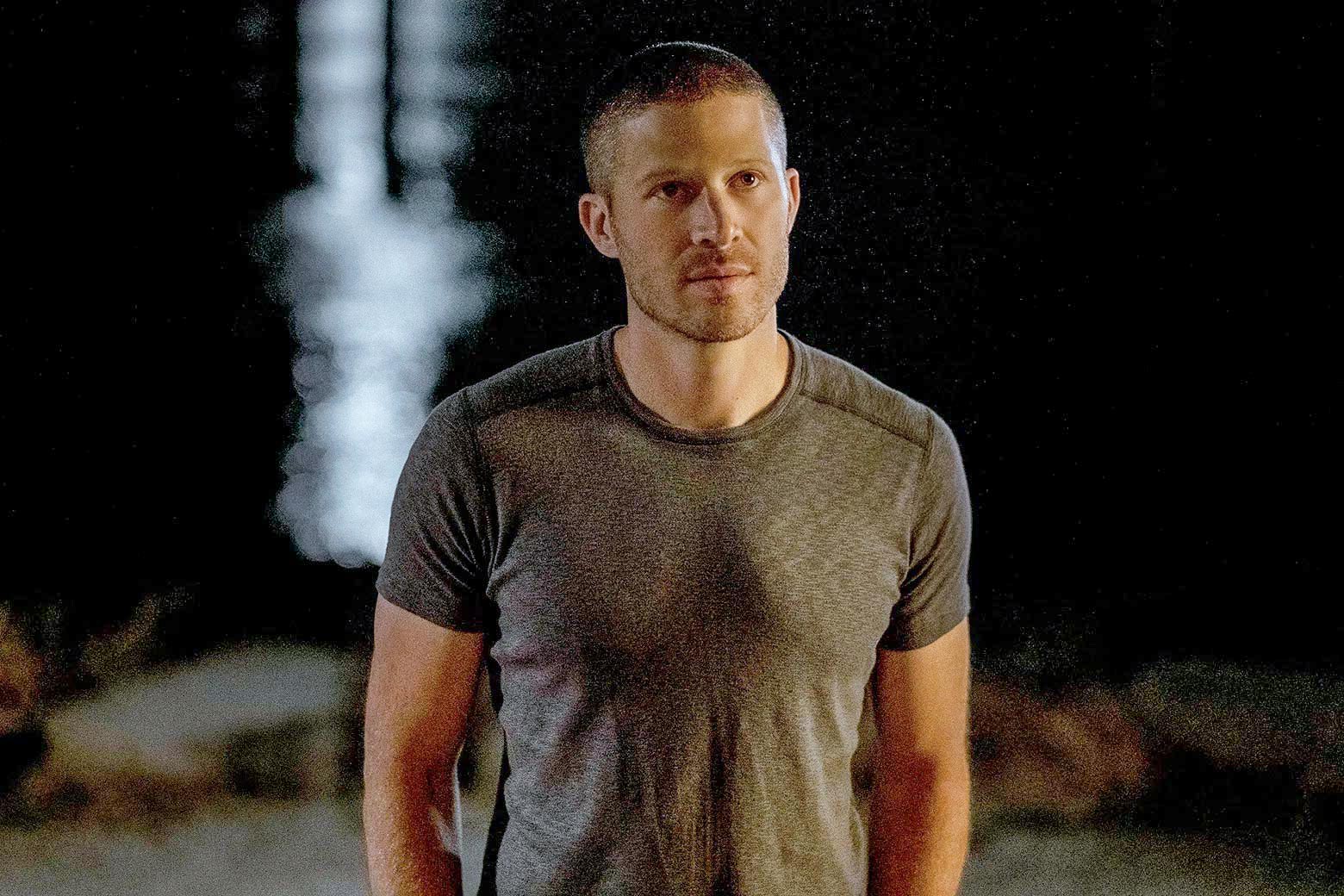This article contains spoilers for Midnight Mass.
Midnight Mass, the Netflix horror miniseries directed by Mike Flanagan, has a moody tone, a creepy island setting, the most charismatic fictional priest (Hamish Linklater) I’ve ever encountered, and a sui generis mix of philosophy, human drama, and bloody terror. It also has Matt Saracen—Landry’s pal, the shrimpy guy who threw that football through that tire swing, and was so nice to his grandma. Seven, from Friday Night Lights, the guy from that first-season team who’d definitely make the best boyfriend, is BACK!
I mean, of course, the actor Zach Gilford, playing the island’s prodigal son, Riley Flynn. As fictional characters go, Riley and Matt Saracen are very different. Matt is a real sweetie, a nerd with only a few friends, who’s catapulted into the spotlight as the fill-in quarterback when the much more confident and popular Jason Street gets injured. The story of Seven is a teenager’s story. He grapples with feelings about his mom, who left him with his grandma, who suffers from dementia; his hard-ass dad, who is serving in Iraq; and Julie, Coach Taylor’s daughter, who becomes his on-again off-again love.
The story of Riley, on the other hand, is the tale of a beaten-down man. Riley dresses in “don’t look at me” neutrals; in the show’s muted color palette, Gilford’s close-cropped hair sometimes looks almost grey around the edges. Matt Saracen was open like a book; Riley rarely smiles. Riley ends up back on the island because, after making a bunch of money in start-ups in Chicago, he drove blackout drunk one night, had a head-on crash with another car, and killed a young woman. He spent a few years in jail, and exited penniless, falling back into his childhood hometown (population, 127) with an intense sense of purposelessness, having lost his childhood faith completely. “I have nothing. I have no money, no prospects. I just … exist now,” he tells his high-school sweetheart Erin Greene (Kate Siegel), bitter to the core.
But Zach Gilford is a MacArthur-level genius at exuding an aura of fundamental decency, and that’s what connects the two. Midnight Mass, an atmospheric horror series that dwells at length on the meaning of life and concludes with half of the island turning on the other half in an orgy of blood, contains inside itself an intense and compelling small-town romance. Gilford’s ability to project “very good guy,” honed through years of being Matt, is key to that.
The relationship between Riley and Erin—each of whom left the island, then returned, running from the bad things that had happened to them in the outside world—is a recognizable setup for a love story. (There’s a whole channel full of such stories, in fact, all of them with much happier endings.) Midnight Mass leans into this trope. Riley and Erin walk shoulder to shoulder through the town’s streets and talk easily; he helps her assemble a crib for the baby she’s expecting. I suspected, from the start, that this show would deprive me of the pleasure of seeing this ship set sail, but because Gilford is so good at this, I kept trying to squint and pretend.
Riley, who can be bitingly angry when talking to Linklater’s Father Pruitt at their court-mandated AA meetings, is at his most earnest when he’s with Erin. The day that she finds out that she has miscarried her very wanted fetus (this happens because she’s been secretly fed vampire blood—normal Midnight Mass stuff), Riley comes to her house and they talk for hours. In her mom’s beige living room, they sit across from one another on the couch. The episode leaves for other plotlines, but returns again and again to their conversation.
Sitting with a slight slump among the throw pillows, Riley quietly cries a few tears when Erin tells him how her pregnancy prompted her to leave her abusive husband. She asks him to pray with her, and although he doesn’t believe, he stands up with her and holds her hands. “Mercy, mercy,” she prays. “Our sorrow is too much; it’s too much.” They tell each other what they think happens when a person dies: for Riley, it’s a welcome dissolution of a person’s atoms into the stream of life; for Erin, a reclamation of the soul by other souls already gone, so they can all live with God. Talked out, the two sleep, celibately, on top of the covers, and wake up, gazing at one another.
Yes, I’m a cheeseball for rewinding that last part to see it again. But this grim show needs the warmth between Riley and Erin to be as weirdly moving as it was. The two have the most meaningful deaths that I’ve seen in horror in a while. At the end of the fifth episode, Riley, who’s been turned into a vampire by the priest who’s planning on doing this to the whole island, rows Erin out in the ocean so that he can self-immolate as the sun rises, and prove to her that what he’s told her is happening is real. As he dies, he sees Tara, the girl he killed on the road, smiling and whole; she reaches out to him and raises him up—as Erin imagined her fetus’ already-dead relatives might do to that miscarried child. And as Erin dies, in the last episode, she experiences what Riley said he thought death would be: a dissolution of the self, into everything.
We never see the two kiss, but they are so close that instead of swapping spit, they exchange cosmologies. This switch-up isn’t Hallmark, but it’s awfully romantic. And we have the ghost of Seven to thank for that.
